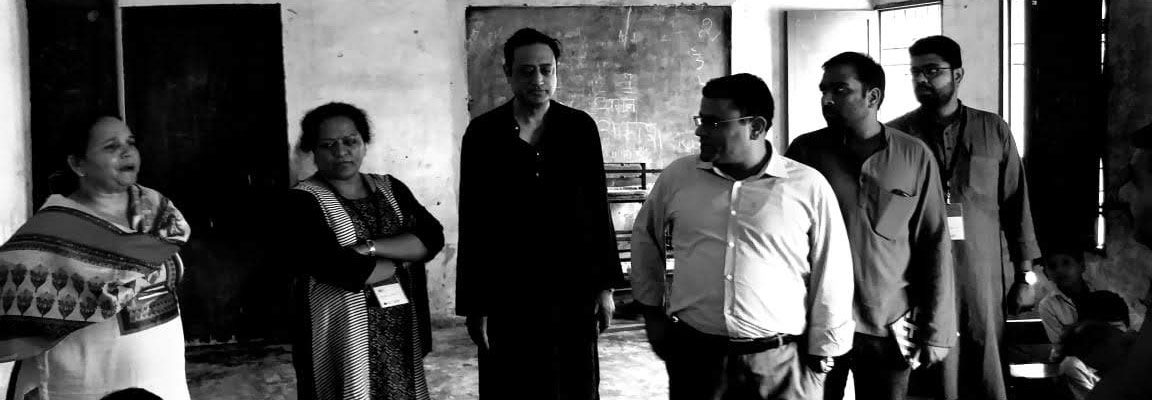


Date : Jun 13 , 2019 | In The News
A growing band of corporate honchos who, having enjoyed success in their corporate careers, are now taking up roles in the social sector for high-impact work.
Last November, Ashutosh Tyagi, former executive vice-president at Tata Capital Private Equity, took over as head of the $1 billion India Education Outcome Fund at the India chapter of non-for-profit enterprise Social Finance. For the 44-year-old, the move came after nearly two decades at the Tata Group, working across various geographies and functions like beverages, apparel, watches and telecom.
Moving into the social sector while in the middle of a high-flying corporate career may sound unusual for many, but Tyagi doesn’t think so. His investment management experience — first at the Tata Group holding company and then in their private equity practice — has married well with his interest in education. “Being a CEO wasn’t my driver. It was the work rather than the position that mattered,” says Tyagi, whose work now involves delivering on learning outcomes focused on government and affordable schools across India.
He says he brings in a problem-solving attitude to social issues rather than just a bleeding heart. “With my education, my corporate experience, if I can bring about a new perspective, that is where I see myself adding value,” says Tyagi.
Tyagi is one among a growing band of corporate honchos who, having enjoyed success in their corporate careers, are now taking up roles in the social sector for high-impact work that makes a difference to the larger population.
Tata Trusts, India’s largest charitable group, says it has seen that senior practitioners from the corporate sector are increasingly open to opportunities in the social sector. In the recent past, senior professionals from banking, finance, hospitality, telecom and infrastructure have joined the Trusts for roles in general management, impact assessment, finance, treasury and technology. In the last two years, at least seven senior professionals have come from such sectors.
At not-for-profit Akshaya Patra Foundation, Shubha Goel, director-HR, says that 30% of the overall hires last year have been from corporates. The entire senior management at Akshaya Patra is from corporate backgrounds. And, in the last year, it has added three more: Suju Datta, director of quality and food safety; Radhakrishnan Seetharaman, director – internal audit; and Pritam Shetty – head of compliance.
“We
are seeing a surge in the applications from corporate people. For them,
it’s about purpose, meaning and a missionary mindset,” says Goel.
Why does the social sector want talent?
According to the recent Bain & Co India Philanthropy Report, social sector funding has grown at a rate of 11% over the past five years. While the government continues to be the largest contributor to social sector funding in India, private philanthropy is growing and has outpaced public funding growth.
In 2017-18, spending on corporate social responsibility projects increased 11% to Rs 10,030 crore, according to an analysis of 1,080 of 1,795 companies listed on the National Stock Exchange by PRIME Database Group.
“Hand-in-hand with the revenue pool/grant money going up, there is expectation from more sophisticated funders who are demanding organisational capabilities, systems and processes and outcome metrics. This means if you really want to scale, you need a second line of leadership,” says Ashish Dhawan, founder-chairman of the Central Square Foundation.
There’s also a quest for meaning. “Younger people have more of a social conscience and want to do more meaningful work. Unlike earlier, when the odd IIM guy got frustrated and stumbled into such a job, increasingly people are now taking it up as another pathway going forward,” says Dhawan.
Talent being trained
Despite demand, the sector still suffers from a lack of leadership talent. Stepping in are organisations such as ILSS (India Leaders for Social Sector), which runs the ILSS Leadership programme, a nine-day residential course designed to empower talent from diverse backgrounds to play leadership roles in the development sector. The programme has seen participation from more than 85 leaders from 22 industries.
Alumni include Prashant Singh, director of coordination and strategy at PHFI (Public Health Foundation of India) and Vyjayanthi Mala, leader of Open Data Judicial Platform at VAYAM.
“If you look at the social sector, there are only a handful of Rs 100 crore-plus organisations. There is huge scope to scale but it requires certain systems and organisational skills,” says Anu Prasad, founder of ILSS. She says they get a lot of senior professionals including CXOs who have a nest egg put away and are now looking for meaning and purpose.
You can do good if you’ve done well
While the sector has now started paying more, corporate professionals still need to take a hefty pay cut while making a transition. Indian NGOs can pay anywhere between Rs 25 lakh and Rs 50 lakh at the senior-most level, depending on size and funding, while foreign organisations pay more.
“Some leaders would take a normal pay cut of 40-50%,” says Prasad.
But increasingly, people are still willing to take the plunge. “My compensation is much lower now. But I have a certain amount in the bank and there’s comfort in taking the cut. You can do good if you’ve done well,” says Tyagi, who is also an ILSS alumnus.
“Am I being able to be part of something which changes the world around me? Love for the world around is critical if you’re exploring the social sector,” he says.
This article was originally published in The Economic Times. The link to the original article is here.
Date : Jul 4 , 2024
Date : Jun 27 , 2024
Date : Jun 15 , 2024
Date : Apr 5 , 2024
Date : Mar 28 , 2024
Date : Jan 25 , 2024
Date : Mar 22 , 2023
Date : Mar 15 , 2022